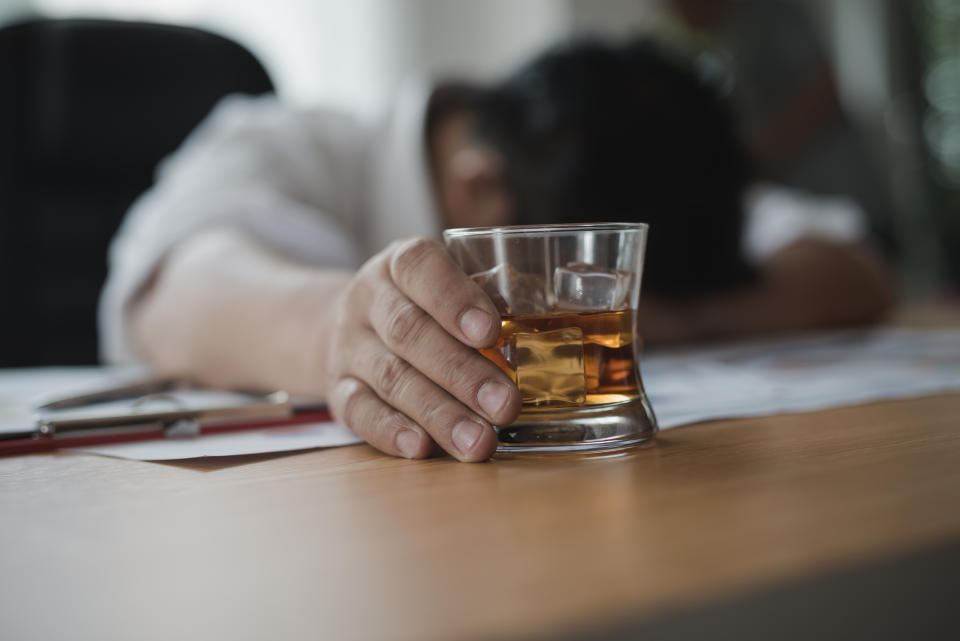Alcohol abuse on the rise in Singapore, according to mental health study

A wide-ranging study on the state of mental health in Singapore found that more people are suffering from alcohol abuse, compared with a similar study done in 2010.
The proportion of people in Singapore who suffered from alcohol abuse rose to 4.1 per cent in 2016 from 3.1 per cent in 2010, according to the second Singapore Mental Health Study released on Tuesday (11 December). It was the biggest rise among the common mental disorders examined in the study, which involved interviews with 6,126 Singaporeans and permanent residents.
The study – spearheaded by the Institute of Mental Health (IMH) in collaboration with the Ministry of Health (MOH) and Nanyang Technological University (NTU) – found that those who struggled with alcohol use disorders were typically lower-educated men aged between 18 and 34. Their recurrent alcohol use had affected their obligations at work, school or home, according to the study.
Another common mental disorder showing a significant increase was generalised anxiety disorder, which rose to 1.6 per cent in 2016 from 0.9 per cent in 2010.
One in seven experienced mental disorder in their lifetime
Funded by MOH and philanthropic organisation Temasek Foundation Innovates, the study sought to establish the prevalence of some common mental disorders in the Singapore resident population aged 18 years and above. It also provides insight on how the mental health landscape in Singapore has evolved since the first study in 2010.
It found that one in seven people have experienced a mental disorder, such as depression or alcohol abuse, in their lifetime. The lifetime prevalence of 13.9 per cent was an increase from 12 per cent in 2010.
The top three mental disorders in Singapore are major depressive disorder, with one in 16 people in Singapore having the condition at some point in their lives, alcohol abuse (one in 24 people) and obsessive compulsive disorder (one in 28).
The proportion of people having two or more mental disorders increased to 3.5 per cent from 2.5 per cent.
Majority still not seeking help
The study also found that the majority of people with mental disorders were still not seeking help. However, among people who had experienced a mental illness in the past one year prior to the survey, there is a positive trend of help seeking. The proportion had dropped slightly to 78.4 per cent in 2016 from more than eight in 10 people (82.1 per cent) in 2010.
Those who sought help had done so earlier. For instance, in the case of alcohol abuse, the treatment delay decreased to four years on average in 2016 from 13 years in 2010. For depression, the treatment delay fell to a year from four years, while for bipolar disorder, the treatment delay was reduced to four years from nine years.
Bucking the trend were those suffering from obsessive compulsive disorder, who took an average of 11 years in 2016, compared with nine years in 2010.
Dr Mythily Subramaniam, the study’s co-principal investigator who is also the IMH’s research division director, said, “While there is an increase in the prevalence of anxiety disorders and alcohol abuse, early positive trends in the form of reduction of the 12-month treatment gap and decrease in the delay in seeking treatment are heartening.
“Nonetheless there is still a significant proportion of people who are not seeking help, which is a concern and we hope that this will improve.”
Increased awareness of mental disorders
Researchers from the IMH said the increase in lifetime prevalence of people experiencing a mental disorder could be due to increased awareness of mental disorders, as well as more sources of stress, although the study did not delve into specific causes.
Among the people with a mental disorder in their lifetime who sought help, 42.3 per cent had consulted a psychiatrist, 36.5 per cent went to a counsellor, 26.2 per cent to a psychologist and 20 per cent went to a general practitioner or family doctor.
Other Singapore stories:
Jail, caning for man who stabbed pregnant wife after accusing her of prostitution
2 forklift operators charged for soliciting $1 bribes from truck drivers
HSA cautions public over consuming mahogany seeds following reports of liver injuries


